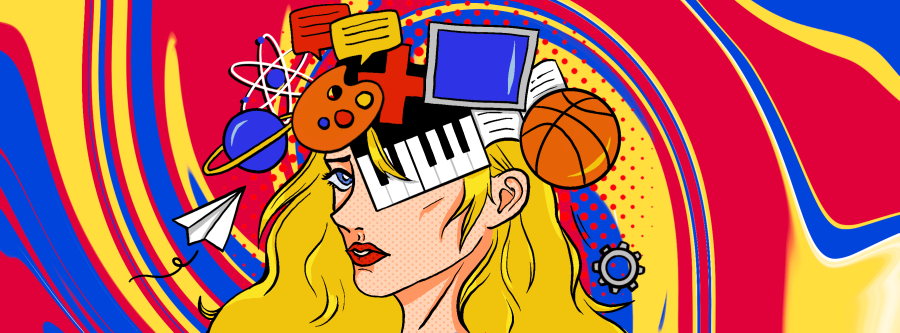My experience choosing a major has been quite difficult. To choose what I want to pursue for the rest of my life is a tall order to say the least. Choosing a major has been difficult because having so many options leaves me doubting my major, and I’m not alone. About 80 percent of students in the United States end up changing their major at least once. On average, college students change their major at least three times over the course of their college career. Universities should not expect 17 and 18 year olds to choose their major, as this sets up the students’ trajectory for the rest of their lives. According to scientific research, teenagers’ brains are not fully developed, thus rational decision making is not an acquired skill. Additionally, high schools and universities are not aiding students in making this momentous decision.
Scientifically speaking, teenagers are not fully able to make rational choices and should therefore not be expected to make life changing decisions. The part of the brain in charge of making rational decisions is not fully developed until much later; studies show that human brains do not fully developed until age 25. In fact, recent research finds that adult and teen brains work differently. The recognition of this research has not been taken lightly, as it has been integrated within the United States legal system. For example, it is unlawful for young adults to drink alcohol below the age of 21, in part because of the difference in decision making between developed brains and developing brains.
One of the main reasons why many students find it hard to choose a major in college is because high school does not adequately prepare students for career paths. High school teaches students skills and information to excel in courses, but does not lead students down a path to find their passion or teach about lessons with real life applications. Moreover, schools do not make a strong enough effort to teach students more about career opportunities or possibilities. Students spend most of their time working on getting good grades, putting off career explorations to be able to succeed in academic settings.
It is not realistic to expect young adults to make life changing decisions without sufficient knowledge of career opportunities. Many times, students without adequate levels of knowledge about major or and careers are left indecisive. This indecisiveness carries over after graduation. It influences the types of career paths individuals lead. For example, the average person will change careers 5 to 7 times during their working life and approximately 30 percent of the total workforce changes jobs every 12 months. In fact, millennials are known for job hopping, as 21 percent of millennial workers have left their jobs in the last year. This shows how the lack of education on career paths spills over into adult life.
High schools and universities need to improve students’ academic experience to better help them find their passions. Through engaging students in real-world experiences, they would help students choose their majors. This could be in the form of granted credit for civic engagement or internships, or as mandatory classes that educate students on career paths. Additionally, universities should not allow students to declare their major until after their sophomore year. This allows students to focus on their general education courses, reducing the stress of choosing a major. Ideally, students would also have more freedom when choosing courses.
In conclusion, choosing a major is a decision that affects a student’s life forever. It is scientifically proven that teenagers are biologically unable to make fully rational decisions due to the development of the brain. This scientific fact should be taken into consideration within universities and high schools. If high schools and universities offer much needed aid to help students find their passion and their major, students can then use this time to stay curious and determined, explore possible paths, and talk to professors, peers, and colleagues!
Art by Angela Liang of the UCSD Guardian Art Department.














